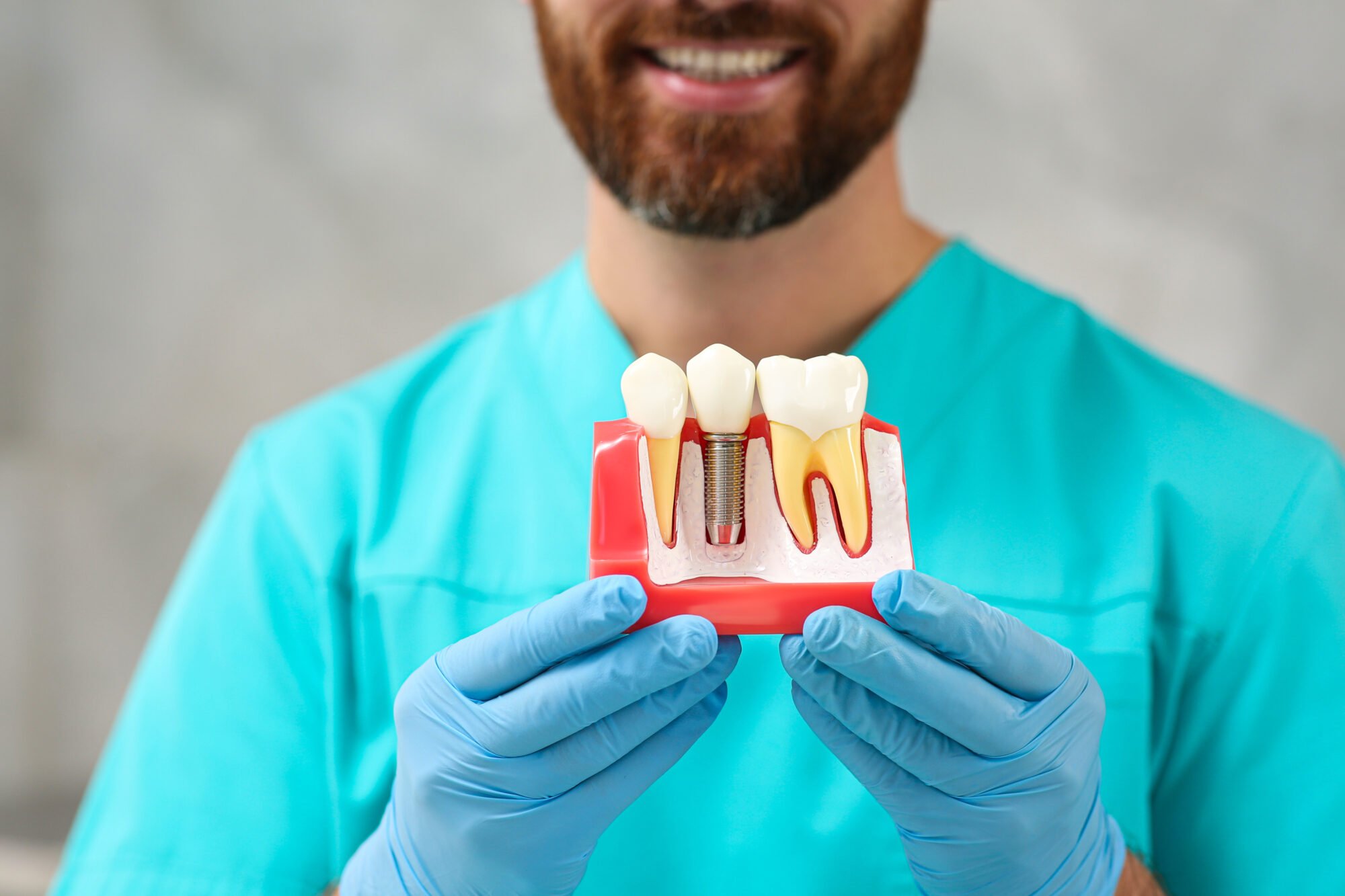Dental implants have transformed the world of dentistry by offering a permanent solution for missing teeth. They not only restore your smile but also improve your oral health and overall quality of life. However, like any investment, dental implants require proper care to ensure they stand the test of time. In this blog, we’ll explore the essential tips for long-term success in dental implant care, helping you enjoy a beautiful, functional smile for years to come.

Understanding Dental Implants
Before we dive into maintenance tips, let's briefly review what dental implants are and why they're such a game-changer in restorative dentistry.
Let’s start with the basics. Dental implants are artificial tooth roots typically made of titanium surgically placed into the jawbone to support replacement teeth, such as crowns, bridges, or dentures.
Why Choose Dental Implants?
Dental implants have gained immense popularity in restorative dentistry, and for good reason. They offer a range of unique advantages that make them an exceptional choice for individuals seeking a permanent solution to missing teeth. Let's explore these advantages in greater detail:
Exceptional Stability
One of the standout benefits of dental implants is their exceptional stability. Unlike traditional dentures or bridges, which may occasionally break or require adjustments, dental implants are firmly anchored in your jawbone. As a result, you can eat, speak, and smile confidently, knowing that your replacement teeth are secure and won't shift or move during daily activities.
Implant vs. Bridge
If a bridge is made to replace a missing tooth, it is necessary to drill down the teeth adjacent to the space to support the bridge. This can increase the risk of tooth sensitivity afterwards or even lead to the need for a root canal on these teeth. With an implant to replace a tooth, the adjacent teeth remain untouched.
Natural Appearance
Dental implants are designed to give the appearance of natural teeth. The crowns, bridges, or dentures attached to the implants are custom-made to match the color, shape, and size of your existing teeth. This attention to detail ensures that your smile looks natural, and it's often challenging for others to discern that you have dental implants. The seamless integration of dental implants into your smile allows you to regain self-confidence and smile freely without concerns about appearance.
Preservation of Jawbone Health
One of the remarkable and often underestimated advantages of dental implants is their ability to preserve jawbone health. When a natural tooth is lost, the jawbone in that area tends to deteriorate over time due to the absence of stimulation from tooth roots. Dental implants solve this problem by acting as artificial tooth roots. When the implant is placed into the jawbone, it stimulates the bone like natural tooth roots. This stimulation encourages the preservation of bone density and structure, preventing the sunken facial appearance that can occur with tooth loss.
Longevity and Durability
Dental implants are renowned for their longevity and durability. With proper care and maintenance, they can last a lifetime. This long-term solution not only saves you from the hassle of frequent replacements but also provides an excellent return on your investment. Unlike other tooth replacement options that may need adjustment, repair, or replacement over time, dental implants offer a stable and lasting solution.
Enhanced Chewing and Speech for Denture Patients
Due to their stability and secure integration, dental implants offer improved chewing efficiency. You can comfortably enjoy a wide range of foods without concerns about the instability or discomfort associated with traditional dentures. Furthermore, dental implants can enhance your speech, providing a stable foundation for clear articulation allowing you to speak naturally and confidently.
Maintenance Tips for Dental Implants
Ensuring the longevity of your dental implants is crucial for a lasting, healthy smile. Here are some essential tips for maintaining your dental implants:
1. Oral Hygiene: The Foundation of Success
Like natural teeth, proper oral hygiene is the foundation of dental implant success. Here's what you should do:
- Brush and Floss: Brush your dental implants and surrounding teeth at least twice daily with a soft-bristle toothbrush and non-abrasive toothpaste. Floss daily to remove plaque and debris between your teeth and around the implants.
- Use a Waterpik: The use of a Waterpik on a low power setting is very beneficial to maintaining the health of the gum tissue around your implants.
- Regular Dental Check-ups: Schedule regular check-ups with your dentist for professional cleanings and to monitor the health of your dental implants.
2. Avoid Tobacco Products
Tobacco use, including smoking and chewing, is detrimental to dental implants. It can increase the risk of infection, gum disease, and implant failure. If you're a tobacco user, consider quitting to safeguard your dental implant investment.
3. Healthy Diet Choices
A balanced diet rich in essential nutrients like calcium and vitamin D is crucial for maintaining strong bones, including your jawbone. This supports the stability of your dental implants. Additionally, avoid excessive sugar intake, as it can lead to gum disease and implant complications.
4. Protect Against Teeth Grinding (Bruxism)
Grinding or clenching your teeth, a condition known as bruxism can exert excessive force on dental implants, leading to damage or loosening. If you grind your teeth, consult your dentist, who can recommend a nightguard or other suitable solutions to protect your implants.
5. Avoid Chewing on Hard Objects
Dental implants are robust, but they aren't indestructible. Avoid chewing on hard objects like ice, pens, or popcorn kernels, which can lead to damage.
6. Prevent Gum Disease
Gum disease is a significant threat to dental implants, as it can cause the implant to loosen or fail. Maintain good gum health through proper oral hygiene and regular dental check-ups.
7. Address Dental Issues Promptly
If you experience any discomfort, pain, or complications related to your dental implants, don't hesitate to contact your dentist. Prompt attention can often resolve issues before they become major problems.
8. Know the Signs of Implant Complications
Understanding the signs of implant complications is essential for early intervention. Be alert to symptoms like pain, swelling, bleeding, or mobility of the implant. If you notice any of these signs, contact your dentist promptly.
Dental implants are a long-term investment in your oral health and well-being. By following these maintenance tips and partnering with a skilled dentist, you can enjoy the benefits of dental implants for many years to come. Your smile is an invaluable asset, and with the right care, your dental implants will be your lifelong partner in preserving it.
What surprised you about caring for dental implants? Would you consider an implant if you lost a tooth? Share your thoughts with our readers in the comments below.



